Last Chance to Catch NYC's Holiday Notalgia Train
We met the voices of the NYC subway on our nostalgia ride this weekend!

Uncover the history of NYC's Pickle Alley and see how the tradition of pickling vegetables continues in the Lower East Side today!

The shouts of haggling customers and the sour smell of pickle brine once filled the air on Essex Street, a thoroughfare in Manhattan’s Lower East Side, where today you will find new apartment buildings and trendy bars. However, during the late 19th and early 20th centuries, the street was dubbed “Pickle Alley” for the dozens of pickle vendors found there. Though the pickle industry has significantly shrunk over the ensuing decades, the tradition of brining and selling pickles is carried on in New York City today. Keep reading to discover the history of the “Pickle Alley.”
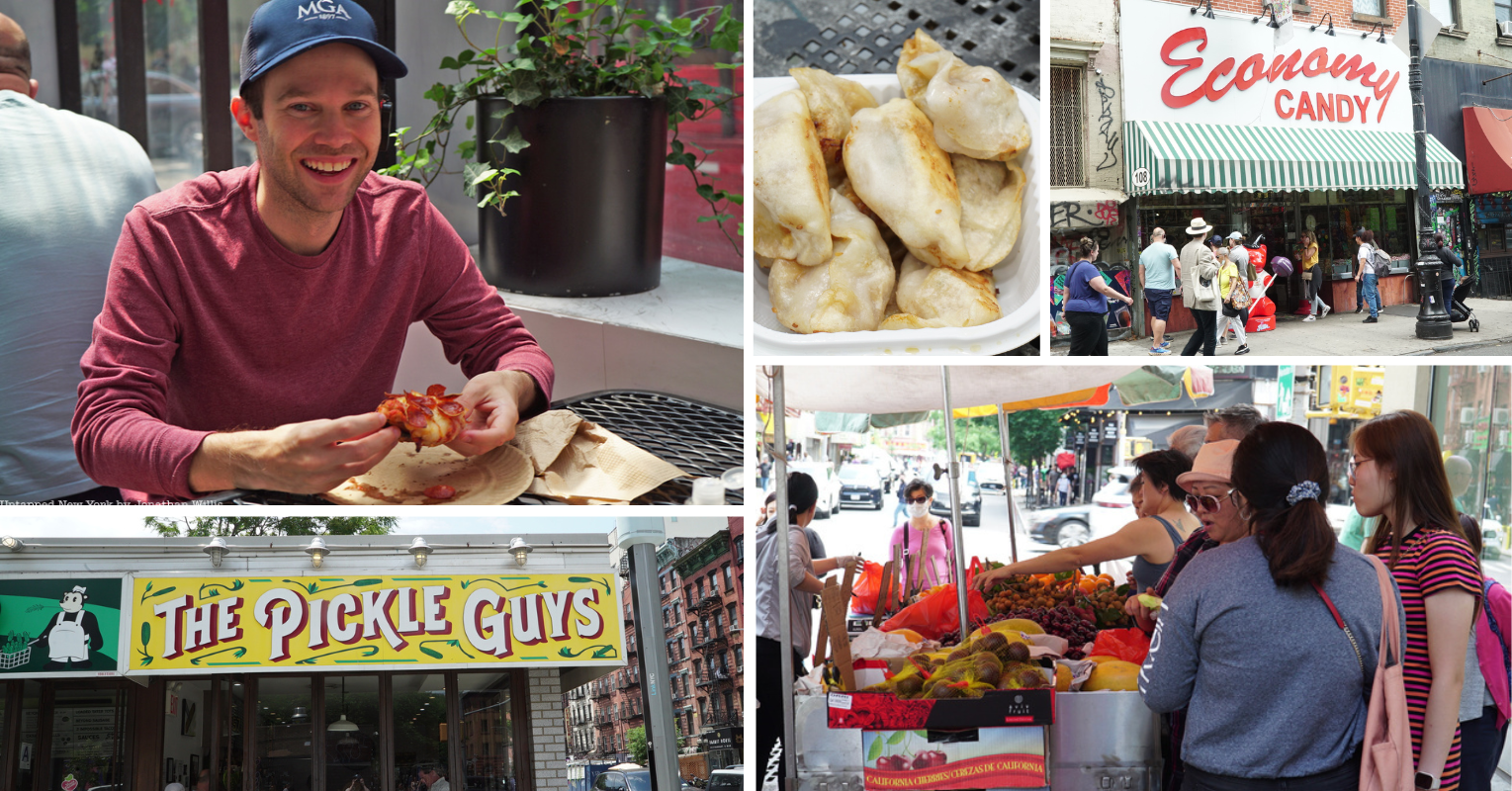
Explore the flavors of Little Italy, Chinatown, and the Lower East Side while learning about the immigration experience in NYC!
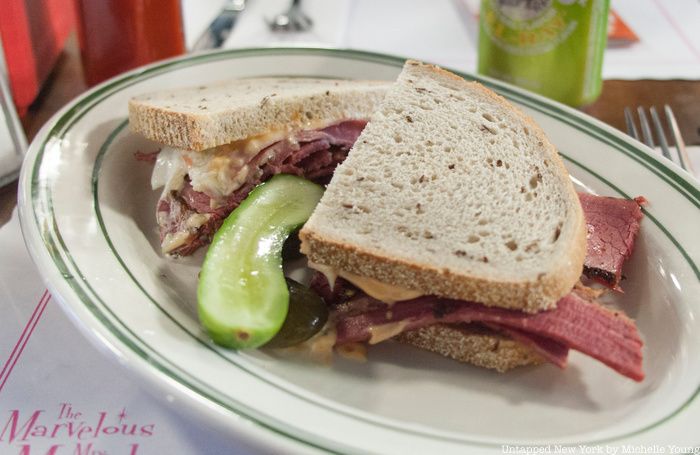 Pickles are served as a side in delis like the Carnegie Deli, recreated in the photo above for The Marvelous Mrs. Maisel
Pickles are served as a side in delis like the Carnegie Deli, recreated in the photo above for The Marvelous Mrs. Maisel
Pickling is an ancient food preservation technique that has been used around the world for thousands of years. The process allows for perishable foods to be stored and saved for consumption during the long winter months when fresh fruits and vegetables may not be available. In New York City, the first pickles were made by the Dutch. According to the New York Food Museum, seventeenth-century Dutch farmers grew cucumbers in Brooklyn, then brined and sold them in markets.
The word pickle even stems from the Dutch word “pekel,” which means brine. The New York City pickle scene hit its peak in the late 19th through early 20th-centuries when the city experienced a large influx of Jewish immigrants from Eastern Europe. These immigrants flocked to the tenements of the Lower East Side, bringing their traditional cuisine with them. Of the foods they introduced to New York, the kosher dill pickle was the most significant. This cucumber pickle is made with a brine of salt, water, dill, and garlic.
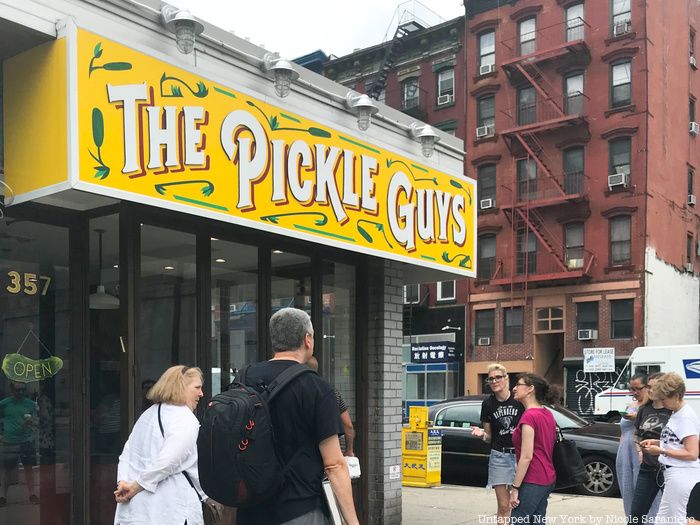 A group of Untapped New York Insiders on a tour of mom-and-pop shops of the LES
A group of Untapped New York Insiders on a tour of mom-and-pop shops of the LES
Pickles were cheap for vendors to make and for customers to buy. In the late 1800s, you could get a whole cucumber pickle for a penny. By the 1920s, according to the Tenement Museum, a pickle would be about five cents. These affordable prices made pickles a favorite grab-and-go street food. They were sold from large wooden barrels at pushcarts, stationary stands, and storefronts on the streets of the Lower East Side. At one point, there were estimated to be more than 80 pickle vendors on Essex Street alone, with more than 200 pickle vendors in all of New York City.
One of the most successful pickle vendors on Pickle Alley was Isidor “Izzy” Guss, an immigrant from Russia who started out selling pickles from a pushcart. By 1920, he opened up a storefront on Hester Street. Guss’ Pickles stayed in business at that location until the early 2000s when it moved to Orchard Street. After the sale of the Orchard Street location and a dramatic legal battle over the name, Guss’ Pickles ceased to exist in the Lower East Side.
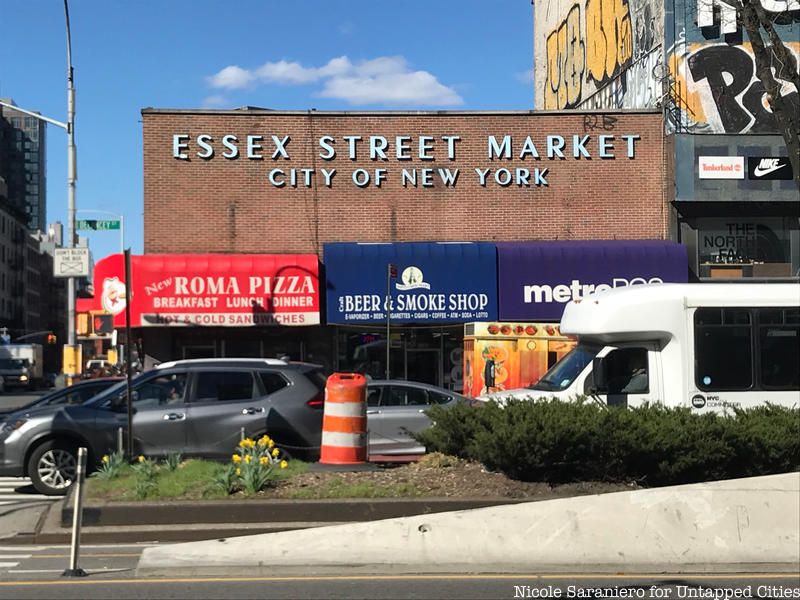
In the 1930s and 40s, Mayor LaGuardia made it his mission to clean up the Lower East Side streets and get rid of the congestion caused by the proliferation of pushcarts. Street vendors were moved into indoor public markets like the Essex Street Market, which opened in 1940. Today, there is one remaining pickle vendor on Essex Street, and the original Essex Street Market has a new location.
As the sole pickle vendor in the Lower East Side, The Pickle Guys carry on a tradition set forth more than 100 years ago. Though their barrels are plastic and not wood, they still make pickles “the old-fashion way.” It’s not just cucumbers that can be pickled! It was very common to pickle other vegetables such as carrots, onions, and tomatoes. At The Pickle Guys, you can purchase over thirty different types of pickled treats. Immigrants from all parts of the world brought their pickling techniques to New York City. These foods, like German sauerkraut, Korean kimchi, and Indian pickled mangoes, are celebrated along with the classic dill pickle every fall at the Lower East Side’s Pickle Day festival.
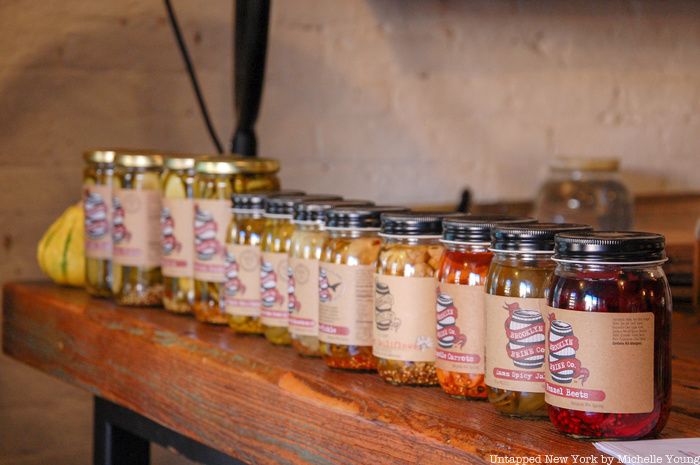
The Pickle Guys stand alone on the Lower East Side’s Pickle Alley, and few other businesses carry on the pickle tradition after the closure of Guss’ Pickles and Brooklyn Brine. Enjoy a pickle with your meal at New York City’s famous Jewish delis like Russ & Daughters or Katz’ Deli or shop for pickles and your next read at Sweet Pickle Books!
Next, check out NYC Fun Facts: The History of the NYC Bagel and Micro Neighborhoods in the 5 Boroughs of NYC
Subscribe to our newsletter